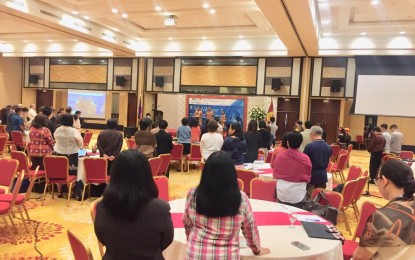
ILOILO CITY — The integration of intangible cultural heritage (ICH) in the curriculum of primary up to tertiary schools is necessary.
University of the Philippines Visayas (UPV) chancellor Ricardo Babaran said this during the opening here of the “Pagtib-ong 2: The UP Visayas International Conference on Intangible Cultural Heritage” on Thursday.
“ICH will be forgotten unless it becomes incorporated in the curriculum in the formal education, from the basic education to the tertiary level,” he said.
Some 50 delegates from the Philippines, Malaysia, India, Vietnam, Indonesia, USA, Korea, Papua New Guinea and Cambodia gathered with the aim to safeguard the ICH through the various research, documentation and education.
The conference brought together scholars, artists, cultural workers who were exposed to 50 parallel sessions, presentations of the scholarly papers, researches and performances.
In a follow-up interview, Babaran described ICH as things that we normally do not see like churches and other architectures.
“These are the things that we hear, we sing, written and mentioned always by them, from earlier history, transferred from generation to generation,” he said.
Babaran said they have been prioritizing the information dissemination of ICH among their students, with other schools and in the communities.
He said they have 13 volumes of “Epics of Panay” and portions of them were even transformed into play. “Some participants (of the play) are going to the communities and trying to learn what these IPs (Indigenous People) are doing,” he said.
Babaran said the UPV is always trying to link up with high schools and tertiary institutions to make them aware of the traditions and culture of Panay people.
He then urged concerned individuals from schools to make a concerted effort to participate in the protection of intangible cultural heritage.
Lawyer Anna Katarina Rodriguez, who represented Virgilio Almario, chairman of the National Commission for Culture and the Arts (NCCA), announced they are now preparing an initiative-focused forum to create a registry of funded researches and pinpoint areas of neglect and areas of over-researched in line with ICH.
It also aimed to assign tasks to persons or institutions to read and research on ICH. “We would like to see scholars and researchers put together a five-year research program,” she said. (Cindy Ferrer/PNA)
